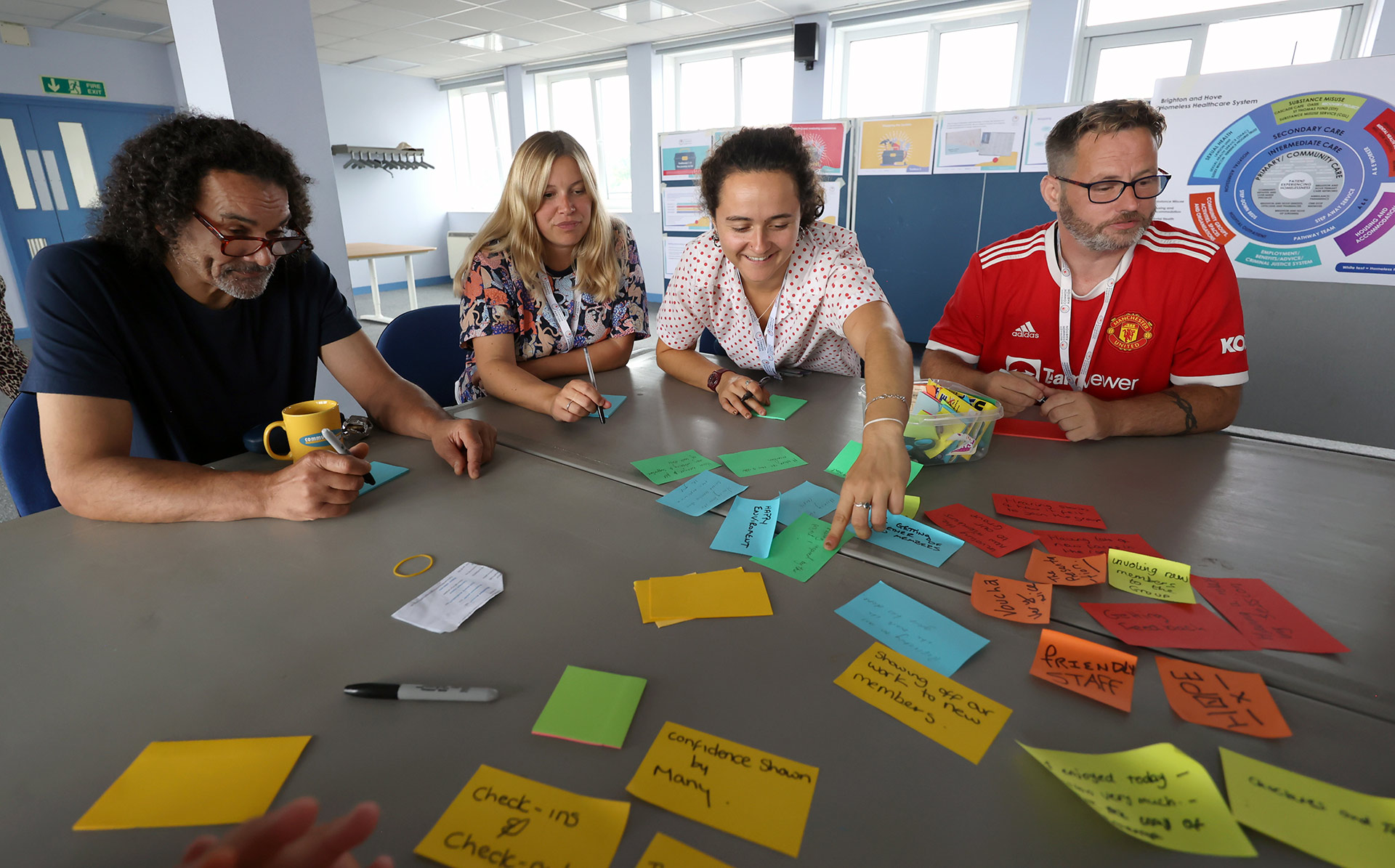
Mythbusting Homelessness Misconceptions
10 October 2022
Written by People with Lived Experience
In their research, Crisis found that 38% of interviewees agreed that “people are only really homeless if they are rough sleeping”, and that many presume that people are homeless as a result of the choices they made.
Here, people who are part of the Common Ambition steering group, all of whom have lived experience of homelessness, will take a look at these two misconceptions and what the reality is from their perspective
This piece was written by them: According to the 2021 Crisis report “Public attitudes towards homelessness”, amongst other issues, the following are two common misconceptions surrounding homelessness. Here we will take a look at the reality from the perspective of people with lived experience.
We need to raise awareness of the Hidden Homeless who are not included in statistics. The statistics are the tip of the iceberg.
Steering group member with lived experience of homelessness
Misconception: That homelessness is only rough sleeping
The Reality: Homelessness is more than what you can see on the streets
Although the most visible aspect of homelessness is people living and sleeping on the street, for many people who are “hidden homeless” it means a lack of security and stability which runs deeper than having a roof over your head day-to-day.
Homelessness can mean rough sleeping, but it can also mean any of the following:
- Short-term emergency accommodation – You could be placed somewhere for weeks or months and moved on with very little notice.
- Hostels – These can be chaotic, noisy and frightening. You may not feel safe or have any say on who you are living with.
- Sofa surfing – Relying on the goodwill of family, friends or even strangers and never knowing when you might be asked to leave.
- An outdoor space – Like a tent or shed in someone’s garden.
- Housing that regularly changes – You may not know where you will be staying the next month, week or even day.
- Domestic abuse shelters and refuges.
- Leaving hospital, rehab, jail, the military or other situations where your accommodation needs have not been met and you have nowhere to go.
Misconception: It is the individual’s fault they are homeless
The Reality: Homelessness is outside of people’s control
Most people facing homelessness have arrived there through no fault of their own. There are many different life circumstances that can lead to homelessness, including the following:
The cost of living crisis can lead to people facing eviction. There has been a 168% increase in people facing eviction ahead of cost of living crisis according to Crisis.
Mental and physical health issues may mean someone can no longer stay in their home.
Family loss or breakdown of relationships may make it difficult or impossible for someone to stay in their home.
Care-leavers may have never had a home.
Someone may need to flee their home because of abuse, violence or other related issues.
1 in 4 members of the public think that the cause of homelessness is drug and alcohol addiction, but it’s a symptom rather than a cause
Lack of suitable accommodation. Someone’s home may no longer be accessible to them due to changing health needs.
This content was created through Common Ambition with the input of those with lived experience.
In association with Arch Healthcare, Justlife & The University of Brighton. If you want to find out more about our work visit:
Follow @justlifeuk on Twitter or @archhealthcic or @uniofbrighton